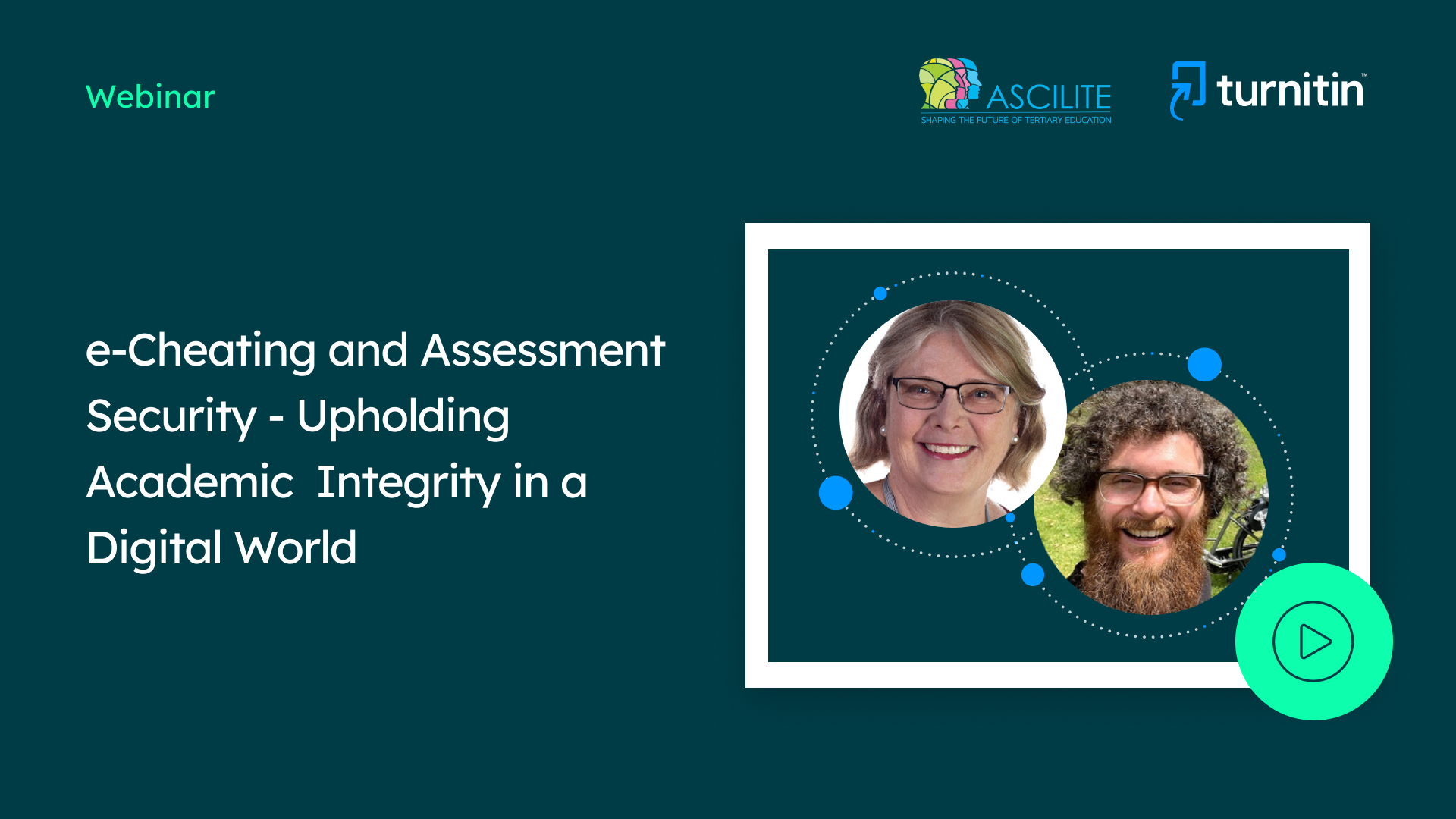As we look ahead towards hybrid learning modalities, how do you preserve a culture of academic integrity, alongside digital equity, as ‘e-cheating’ surges in an online environment without traditional integrity mechanisms?
- The e-cheating lifecycle and how to disrupt it
- Students’ motivation for cheating and why it occurs
- How e-cheating works and the various tools used to facilitate student cheating
- Recommended pedagogical practices to prevent cheating
- How technology can help detect instances of cheating and offer preventative measures against e-cheating
- Uniting pedagogical practices with technology
- Surveillance and weaponisation of academic integrity
- How technology (specifically, Turnitin products) can be used to inform educators of how and when e-cheating occurs (including contract cheating), and deter the behaviour
- Best practices for structuring and designing authentic assessment to minimise the propensity to cheat
All are welcome to attend the webinar, however, this is particularly relevant to Academic Integrity officers and Academic System Managers, in Learning, Teaching and Development; Digital Learning officers and anyone who is interested in setting up their academic integrity practices within their institutions and academics who are keen to learn more about best practices for structuring and designing authentic assessment.



